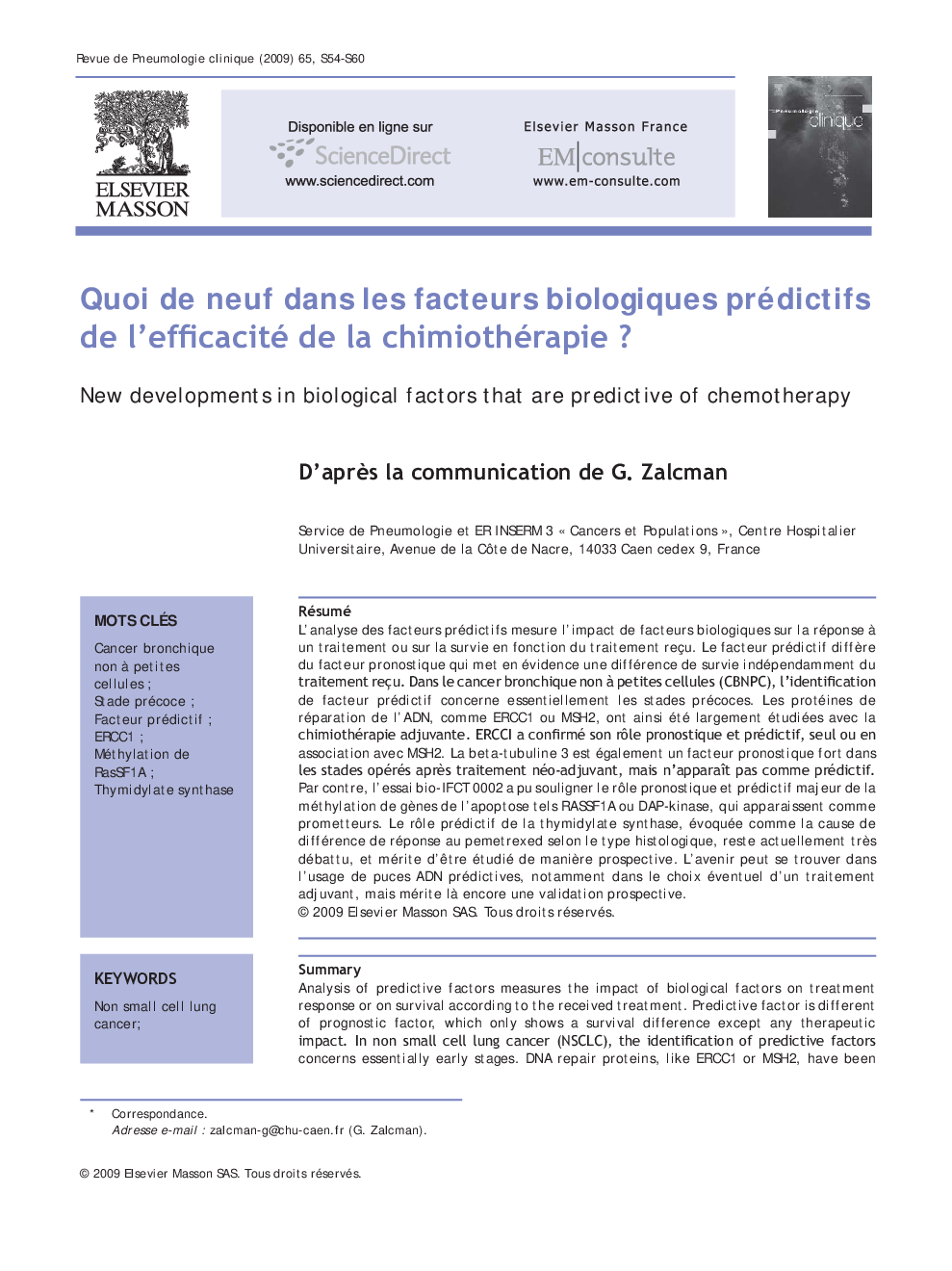| Article ID | Journal | Published Year | Pages | File Type |
|---|---|---|---|---|
| 3419836 | Revue de Pneumologie Clinique | 2009 | 7 Pages |
Abstract
Analysis of predictive factors measures the impact of biological factors on treatment response or on survival according to the received treatment. Predictive factor is different of prognostic factor, which only shows a survival difference except any therapeutic impact. In non small cell lung cancer (NSCLC), the identification of predictive factors concerns essentially early stages. DNA repair proteins, like ERCC1 or MSH2, have been widely studied with adjuvant chemotherapy. ERCC1 has confirmed its prognostic and predictive role, alone or in combination with MSH2. Beta-tubuline 3 is also a strong prognostic factor in early surgical stages with pre-operative chemotherapy, but does not seem to be predictive. On the other hand, bio-IFCT 0002 trial has underlined the major prognostic and predictive role of methylation of promoters, like RasSF1A or DAP-kinase, that appear very promising. The predictive role of thymidylate synthase, that could be the cause of differential effect of pemetrexed according to histological type, is still much debated, and must be studied prospectively. The future is perhaps in predictive DNA chips, notably for the adjuvant treatment choice, but must also be prospectively validated.
Related Topics
Health Sciences
Medicine and Dentistry
Infectious Diseases
Authors
G. Zalcman,
